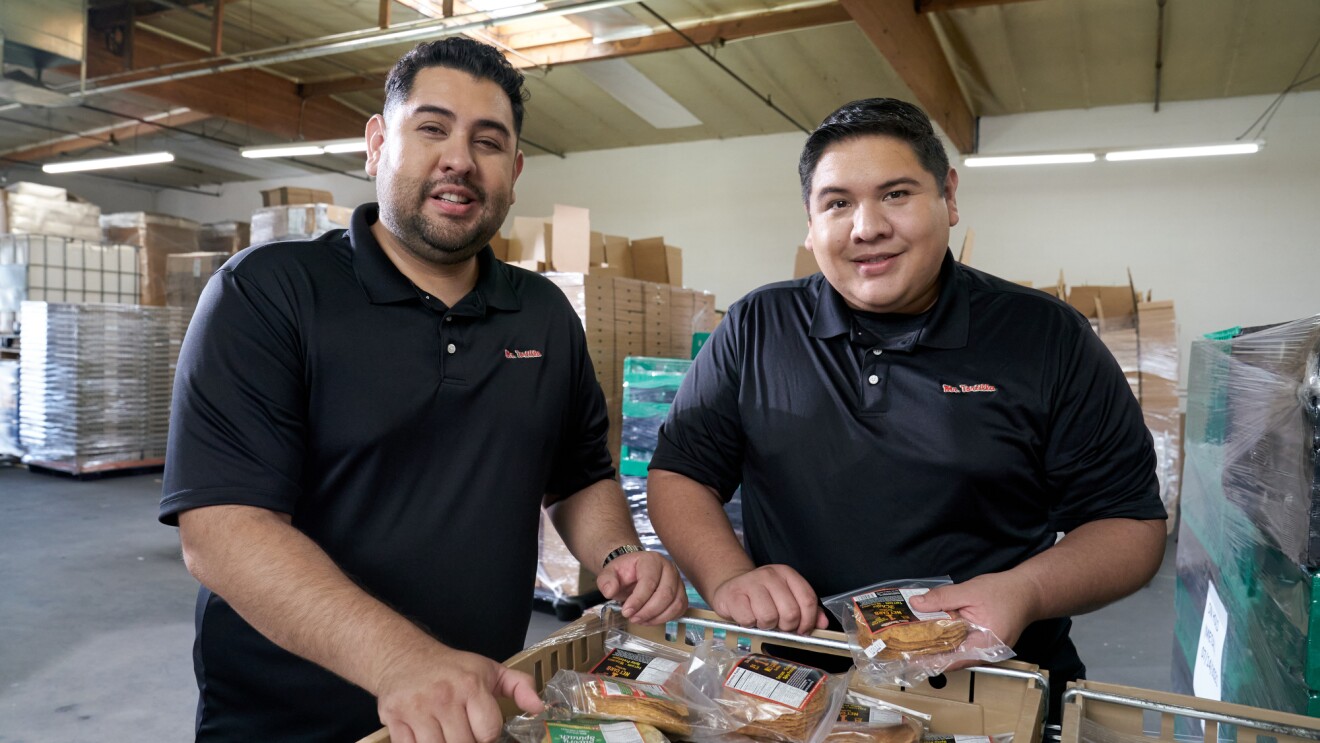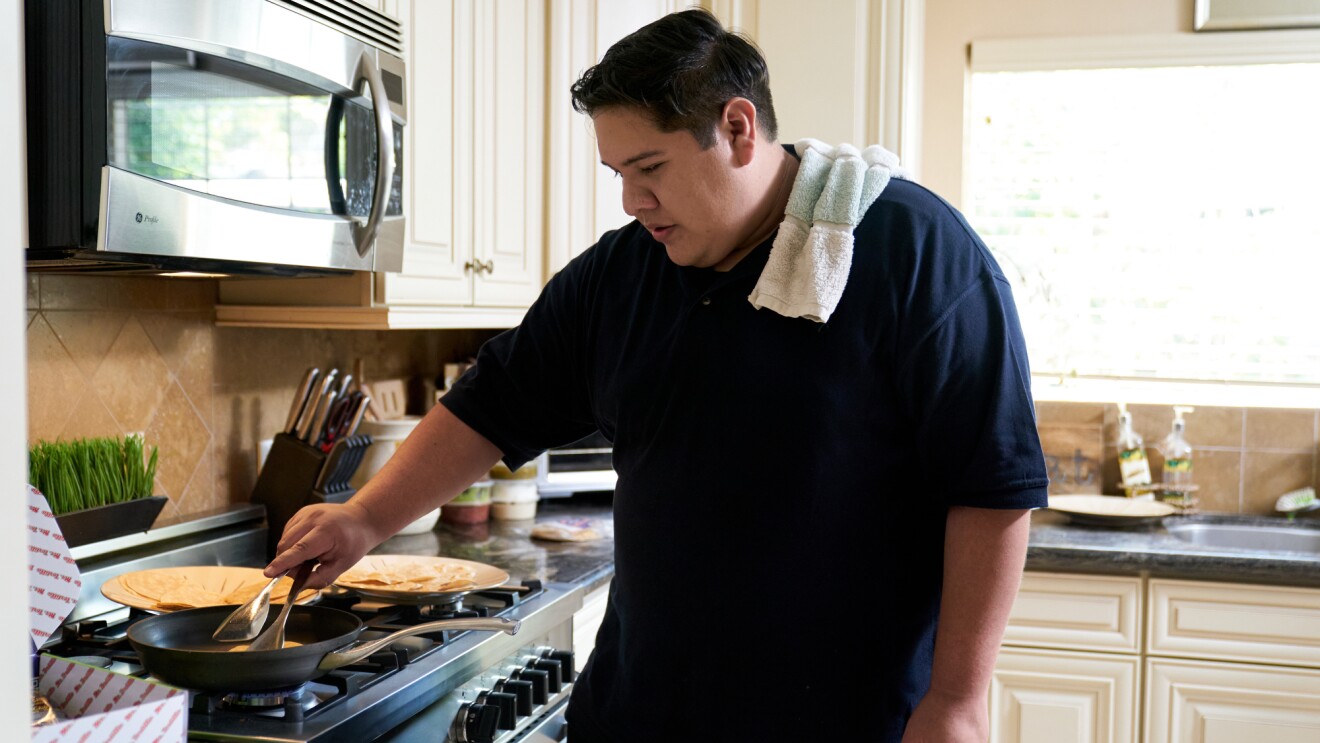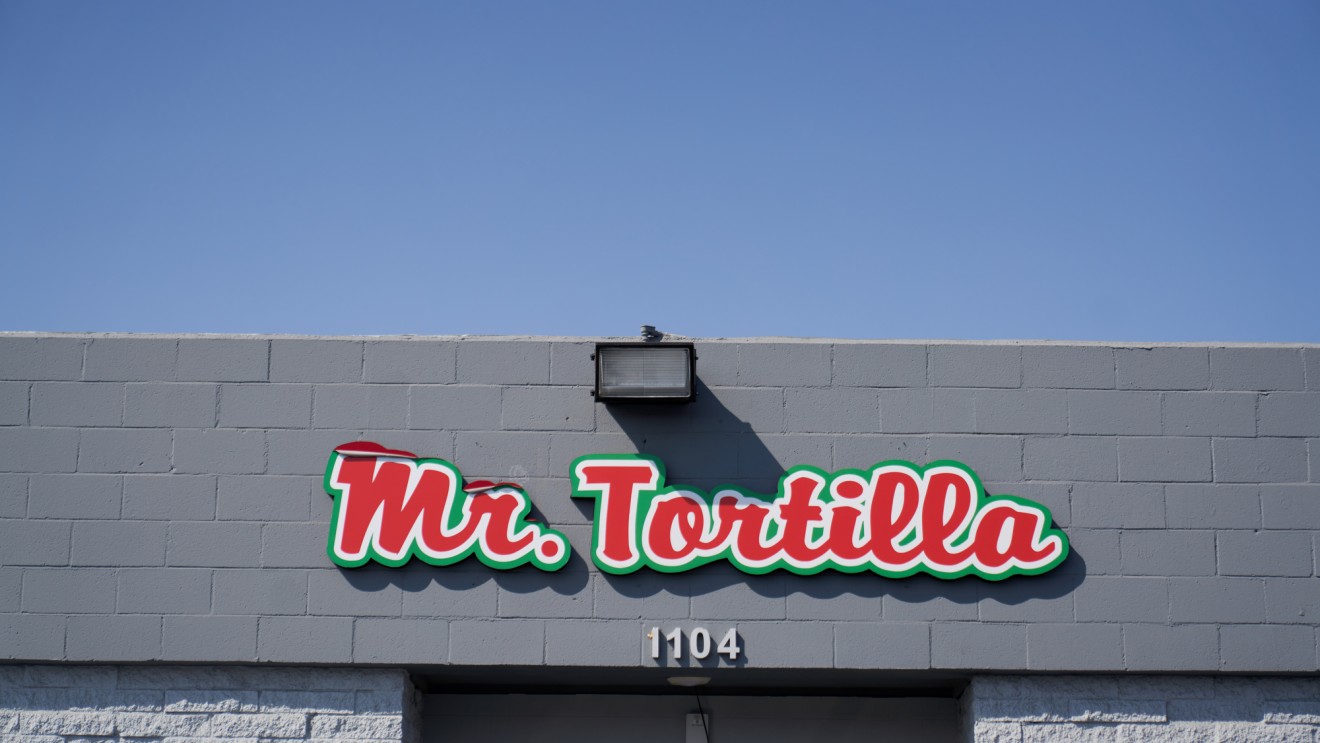In honor of Hispanic Heritage Month, see how entrepreneurs Anthony and Ronald Alcazar invented a low-carb, low-calorie tortilla that’s born out of love and respect for the home cooking they were raised on.
Ronald Alcazar dialed his big brother’s phone. Anthony picked up and heard Ronald’s voice electric with excitement: “I did it! I did it! It held the taco!”
It was a huge moment in the Alcazar brothers’ quest to become business partners. Their whole dream hinged on Ronald inventing a new kind of tortilla. It needed to be radically lower in carbohydrates than conventional flour tortillas while still being tasty. And it had to be sturdy and supple enough to hold the ingredients of a taco, even when folded and lifted up from a plate.

Growing up in southern California, Ronald and Anthony each had a favorite dish from among their mother’s specialties. Both involved tortillas. Flautas—with chicken and a little bit of cream—for Ronald. Tacos for Anthony, especially when their mom had time to barbecue the meat outdoors.
Years later, it was regret over a restaurant meal that sparked the brothers to have their business idea. They were in Los Angeles, right in the neighborhood where they’d both graduated from UCLA—Anthony in 2006 and Ronald in 2012. “We always used to go to this place in Westwood,” Anthony said. “So we went and we grabbed eight to 10 tacos each—happy, delicious. But afterwards, you get the post-taco guilt. ‘Oh, God. How many carbs? I feel bloated.’ And that’s when the idea came about. I asked Ron, ‘Wouldn’t it be great if we could make Mexican food healthier?'”

That kicked off their quest to make Mr. Tortilla happen. Years of trial and error in the kitchen culminated in the triumph of the day when Ronald phoned Anthony to yell, “I did it! I did it!”
There was still a lot more to do.
With the recipe problem solved, many business challenges lay ahead. Ronald said, “I feel like every Latino entrepreneur is kind of struggling against being relatively new compared to other established businesses.”

Amazon celebrates the success of Hispanic-owned small businessesMeet some of the entrepreneurs selling on Amazon during Hispanic Heritage Month—and throughout the year.Read more
“We needed someone to guide us because we don’t have that experience in the food industry,” Anthony added. “But you know who does? Our dad. So we went to dad. His guidance and mentorship has been tremendous.”
With decades of consulting experience in the hospitality, snack, spice, and baking industries, Tony Alcazar Sr. helped his sons navigate realities that at first came as a shock.

“One thing we didn’t anticipate was how hard it is to get into the supermarkets,” Anthony said. “It was a lot of going and knocking on a thousand doors and getting doors that are closed, closed, closed, closed. A lot of the shelf space is owned by or assigned to the big guys, the big brands. And so, even when we came on board, we would get the lowest shelf, where the product is unseen.”
They pivoted to selling directly to restaurant owners, who embraced Mr. Tortilla products as a way to add a health-conscious alternative to their menus. But then COVID-19 hit, devastating restaurants and turning a major revenue stream for Ronald and Anthony into a trickle.
Anthony shakes his head, remembering how slow he was to catch on to the patient, quiet refrain from Ronald about where to focus their attention next. “Amazon, Amazon, e-commerce, Amazon,” Ronald would say. Back in college, he’d made money on Amazon—mostly by selling classic, collectible video games. So he knew that it could solve the problem they had getting Mr. Tortilla on store shelves if they became selling partners on Amazon and set up their own Mr. Tortilla store on the site.
“Amazon gives everyone an equal fighting chance,” said Anthony, who has now experienced the power of his younger brother’s good idea. “We’re number one on Amazon right now, and we’re the small guys! The reason we were able to get to number one was through digital marketing, being creative, and having customers loving our product and leaving great reviews. And that’s something we’re very grateful to Amazon for.”
He added, “Amazon aided us and our customers by making our tortillas available when they were most needed during the pandemic, and our tortillas quickly became popular. We spent some time on social media interacting with the keto community, and we got the impression that everyone was yearning for something similar to our tortilla. The community’s response was incredible when we first started during the pandemic, especially because our tortillas made it simpler for them to be low-carb during such a trying period. And people with diabetes were able to eat tacos while keeping their glucose levels stable.”
Consistently, Mr. Tortilla’s monthly sales on Amazon are double what they were a year ago, and the workforce has tripled in size during the pandemic to keep up with customer demand, according to the company.
The brothers share their success through a commitment to donating 10% of Mr. Tortilla’s net profits to charities and devoting 10% to employee profit sharing. Ronald said, “Through our success, we want for other companies to be able to emulate that and hopefully change the culture to be more centered around humanity and community.”
During Hispanic Heritage Month






